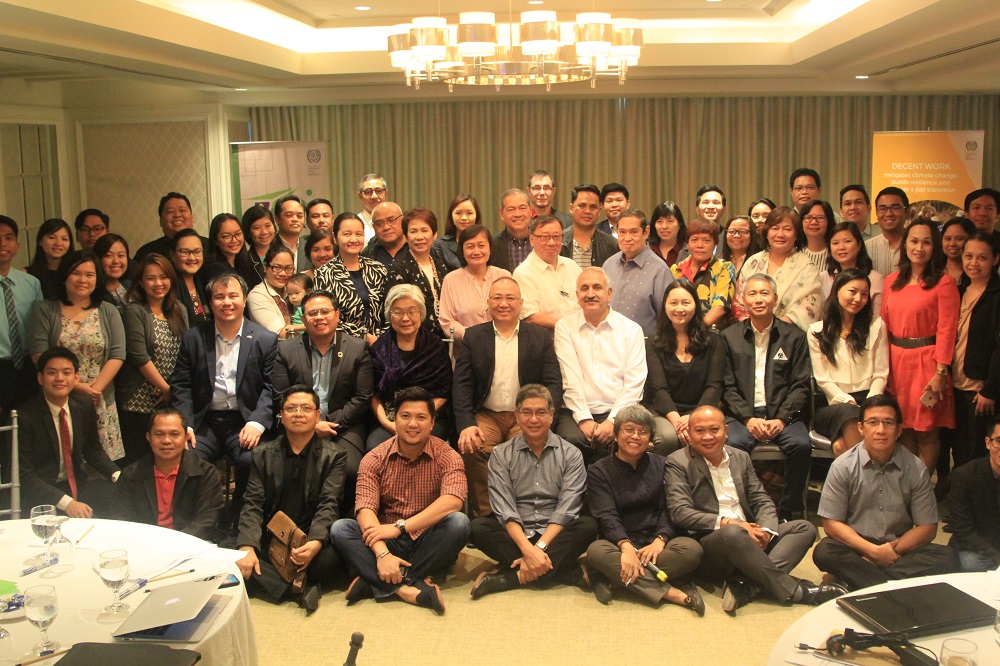
A transition towards a low-carbon and climate-resilient economy will impact communities and societies in ways that potentially have positive and negative effects. The Paris Agreement on climate change recognizes the need to address all these effects so that no one is left behind in the fight against climate change, noting “the imperatives of a just transition of the workforce and the creation of decent work and quality jobs in accordance with nationally defined development priorities"[1].
Pursuant to the ambition of a just transition to a Green Economy, the National Climate Change Action Plan (NCCAP 2011-2028) envisions climate-resilient, eco-efficient and environmentally friendly industries and services under the Climate-Smart Industries and Services (CSIS) thematic area. A just transition to a climate-resilient development pathway can thus become a strong driver for economic growth, job creation, job upgrading, poverty eradication, and social inclusion. Inversely, failing to address social impacts from economic and industrial restructuring could contribute to job losses, social exclusion and disruption on a massive scale. Citing the findings of the World Employment Social Output 2018 report of the International Labor Organization (ILO), pursuing just transition to a greener economy can create around 14 million new jobs in the Asia Pacific by 2030[2]. This makes a case for all of us, especially the employees and workers in the public and private sector, to pursue low carbon development pathways.
Thus, with the Nationally Determined Contribution (NDC), the Philippines is putting in place measures to address the possible impact of the transition as the country develops an inclusive NDC through the application of the Just Transition guidelines of the ILO. This is to be incorporated in the Green Jobs Human Resource Development Planning process and the broader implementation of the Green Jobs Act.
In April 2016, the Philippine Green Jobs Act (RA 10771) was passed into law to scale up promotion of sustainable growth and decent job creation, while building resilience against impacts of climate change by providing incentives to enterprises generating green jobs across all economic sectors.
The Act, a pioneering approach in institutionalizing labour and employment dimensions in the policy framework for addressing climate change issues, mandates the development of the human capital to enable and sustain the transition to a greener economy.
Given its potential to reduce greenhouse gas carbon emissions, and to deliver social development and decent work for all through human resource and skills development, R&D and technology transfer and capacity building, Green Jobs implementation is both a mitigation and adaptation strategy.
It adheres to two of the seven thematic areas of the NCCAP, namely: (1) Climate-smart Industries and Services, and (2) Human Security, ensuring that in pursuing low carbon development pathways, the workforce is not being left behind.
Section 4 (o) of the aforementioned law mandates the Climate Change Commission (CCC), in consultation with concerned agencies, to develop and administer appropriate standards for the assessment and certification of green goods and services, and green technologies and practices for the purpose of regulating the availment of incentives and ensuring green jobs content pursuant to the National Green Jobs Human Resource Development Plan spearheaded by the Department of Labor and Employment (DOLE).
